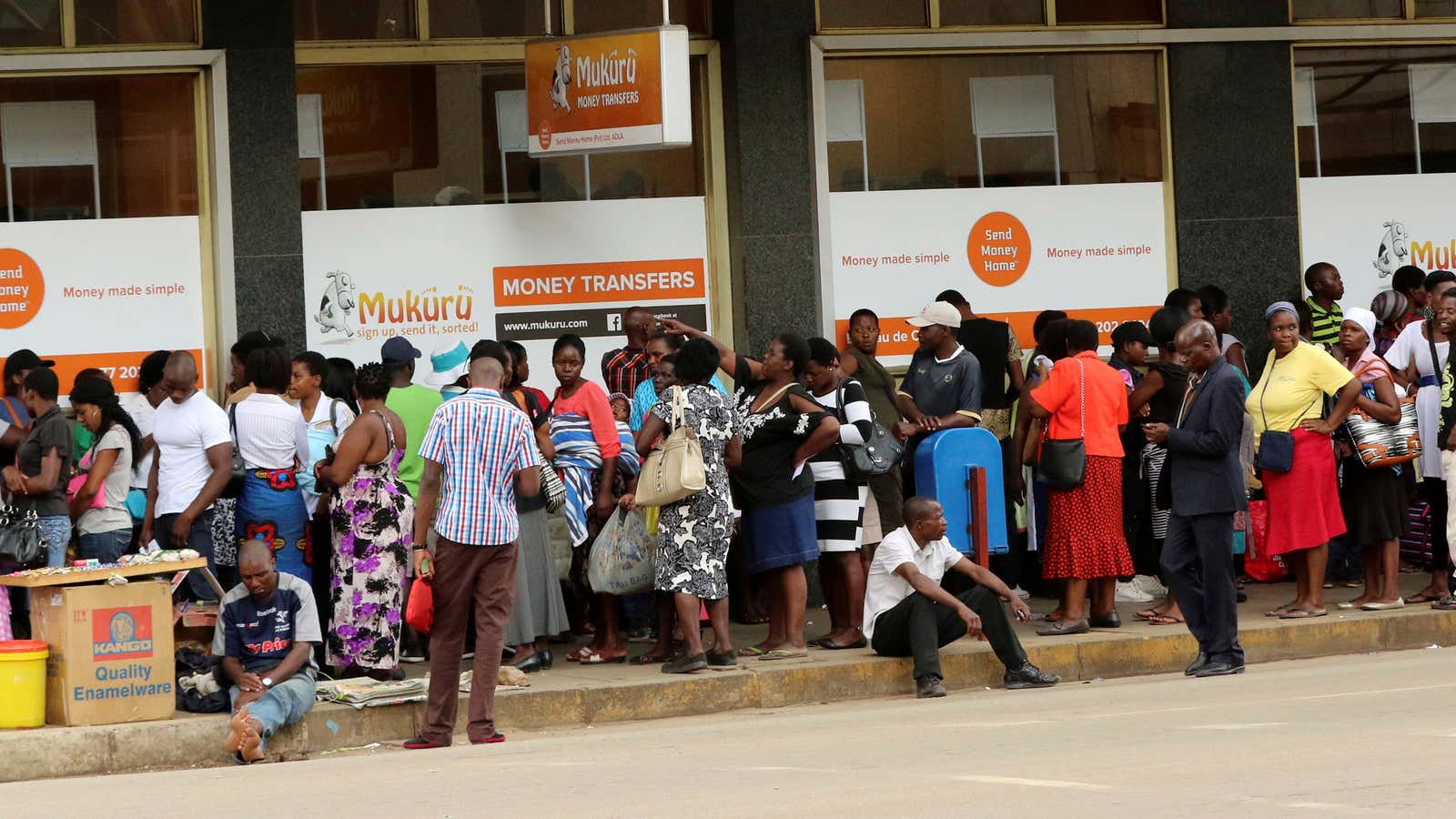Harare, Zimbabwe
Interest in bitcoin trade is soaring in Zimbabwe and so is the price of the crypto-currency, which hit new record highs of nearly $10 000 earlier this month in a worsening economy that the government is struggling to turn around.
Late on Monday (Oct. 23) Bitcoin prices traded around $9,600 on the Golix exchange platform in Zimbabwe. But this is only because the country is experiencing payment challenges and acute liquidity challenges. On other global bitcoin exchanges, prices are just below $6000.
Zimbabweans have found a way to execute transactions, especially those that require foreign currency and this has come in the form of bitcoins, to which there has been overwhelming response and interest by traders. Yeukai Kusangaya who coordinates trades at the Golix bitcoin exchange in Zimbabwe said “there is currently more demand than supply of bitcoins.”
“Interest in bitcoin has peaked as people cannot send money outside or pay for international transactions using formal banks,” said Kusangaya. “People have had to look for alternatives and bitcoin has been a useful solution which can be used to purchase goods on Amazon or to pay for vehicles from international suppliers and traders,” she said.
To offset the crippling bank note shortages impacting the country, the Reserve Bank of Zimbabwe has been printing bond notes (Zimbabwe’s own version of US Dollars) that are supposed to have equal value to the greenback but are actually trading at a premium of about 30% to the US dollar on parallel markets.
Importers and individual traders still have to mobilize foreign currency through their own means and mostly on the parallel markets as the central bank is failing to enable payments to international suppliers and creditors and this has stoked up inflation, say economists.
Zimstats said on Oct. 16 that “the year on year inflation rate for the month of September 2017 as measured by the all items Consumer Price Index (CPI) stood at 0.78 percent, gaining 0.64 percent” on the August 2017 inflation rate of 0.14 percent.
The results of this situation have been crippling; rising prices of household commodities and foodstuffs, continued shortages of cooking oil as manufacturers cannot pay for imported raw materials on time and retailers reject other means of payment such as mobile money and plastic money, preferring cash.
Zimbabwe has even banned the import of fruits and fresh vegetables, saying this is wasting scarce foreign currency resources although local producers warn that this may lead to shortages of apples and pears among other fruits that are in short supply locally
President Robert Mugabe’s government says it is working hard to turn around the economy but blames social media for spreading falsehoods that distort exchange rates and falsely inflame commodity shortages. In a bid to help the country generate more forex earnings, the central bank has raised incentives on export receipts from 5% to 12% but it remains to be seen if this will bring any respite.
